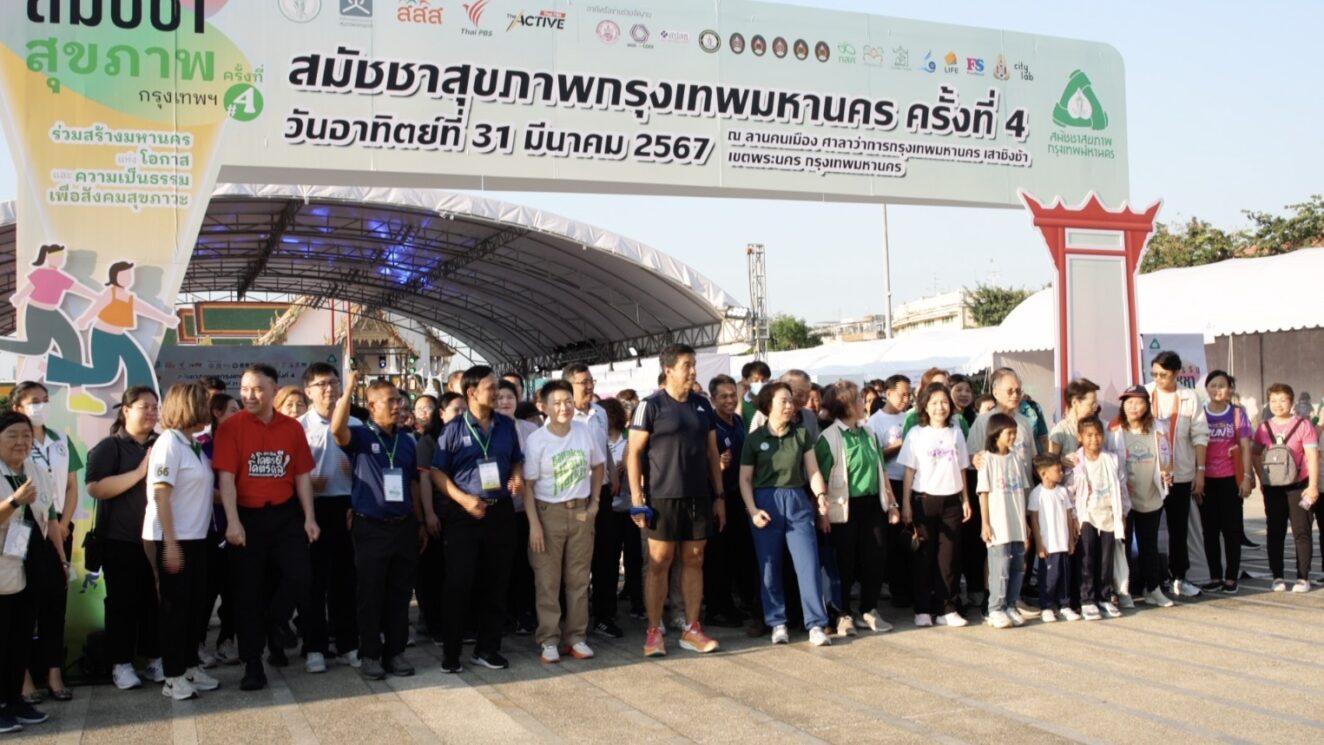
The Four Bangkok Health Assembly Policies aim at improving the quality of life in the metropolis
Source: https://theactive.net/news/urban-20240331/; https://prachatai.com/journal/2024/04/108661; https://en.wikipedia.org/wiki/Giant_Swing
In a bid to foster public discourse aimed at enhancing the well-being of Bangkok residents, four policy issues which developed by the Bangkok Health Assembly, were recently deliberated under the overarching concept of ‘Creating a Metropolis of Opportunity and Health Equity.’ These issues include the primary care system, public space management, regulation of hawker stalls, and the implementation of a Bangkok Health Charter.
Assoc. Prof. Chadchart Sitthipunt, the Governor of Bangkok, Bangkok Metropolitan Administration (BMA) admitted that the most challenging issue in creating a healthy society in Bangkok is the establishment of a strong primary care system. Building a solid foundation and fostering trust among the people is a difficult task, but it is expected that a solution will be found through ongoing dialogue. Efforts are also being made to implement the Health Charter in all 50 districts of Bangkok Thailand, taking into account the specific context of each neighborhood.
Dr. Sunthorn Sunthornchat, Director of the Health Department, Bangkok Metropolitan Administration (BMA), highlighted the policy issue concerning the development of the primary care system in Bangkok. The goal is to be achieved in the near future.
He stated, “Currently, various sectors are collaborating to enhance the utilization of services in primary care units. Specifically, Bangkok has over 300 primary care units serving this purpose. In the case of serious illnesses, patients will be transferred to the Bangkok Public Health Service Centre or directly to the hospital for severe cases. To achieve this, there needs to be coordinated planning and organization of services across different networks, as well as the establishment of a mechanism for cooperation and agreements between government agencies, academia, the private sector, and civil society. This is the primary goal we aim to achieve within three years.”
Regarding the development of public space, there is a focus on community participation to ensure the availability of spaces for residences and communal benefits, not limited to just green areas and spaces for exercise. Prateep Ungsongtham Hata, the founder of the Duang Prateep Foundation, pointed out that the Khlong Toei community recently saw its city plan transition from blue to red, prompting concerns among residents about potential displacement and homelessness. Consequently, they are gathering at this forum to advocate for the allocation of 20% of the area for community health purposes. The initial implementation of this model is slated for the Khlong Toei community.
In terms of managing hawker stalls and promoting economic security, two main issues arise. Firstly, there is a lack of involvement from sellers in finding solutions for pavement usage. Secondly, regulations introduced by BMA which aim to minimize impacts. Hence, there is a necessity to revise Bangkok’s area management regulations and provide more opportunities for community participation.
The goal is to create a system with more balanced regulations. The rules should be fair to all parties involved and should not only benefit the government. Prof. Narumol Nirathorn, chairman of the academic subcommittee supporting the advancement of the Bangkok Health Assembly’s resolutions, emphasized that the economy is closely linked to health, and street food vendors are a vital economic component of the city. Street vending involves not only selling goods by the roadside, but also encompasses the entire supply chain, including farmers, markets, producers, and consumers. Therefore, BMA needs a comprehensive long-term plan for this grassroots economy rather than just focusing on enforcing regulations.
Meanwhile, there should be a mechanism for certifying hawkers, enabling them to have more input in setting rules and ensuring their sustainability. This model should involve establishing a certification process at both the area and district levels. Furthermore, this process should extend to contract workers throughout the system, not solely to hawkers, to ensure decent working conditions in the city and prevent them from becoming a burden to society. This could include providing support spaces, such as a Hawker Center. Therefore, it is important to designate a pilot area and establish a mechanism that effectively integrates work and drives it forward.
The 4th Bangkok Health Assembly forum was held at Lan Khon Mueang Town Square, BMA City Hall, on March 31, 2024. It provided a platform for discussions and participation from all stakeholders to establish shared rules to bring these visions of four policies to reality within the next three years.
